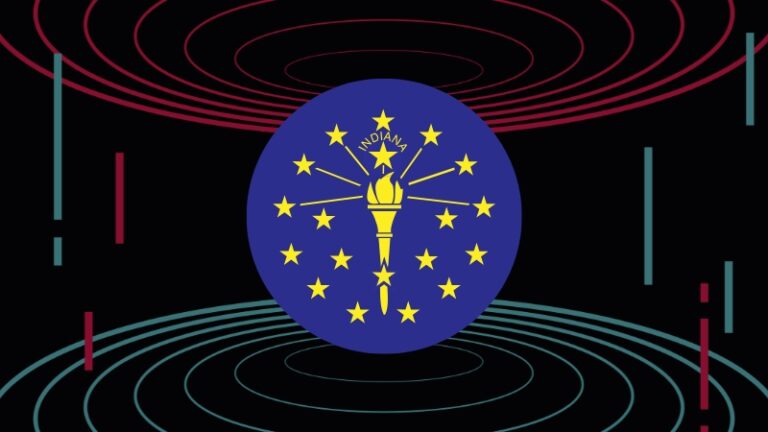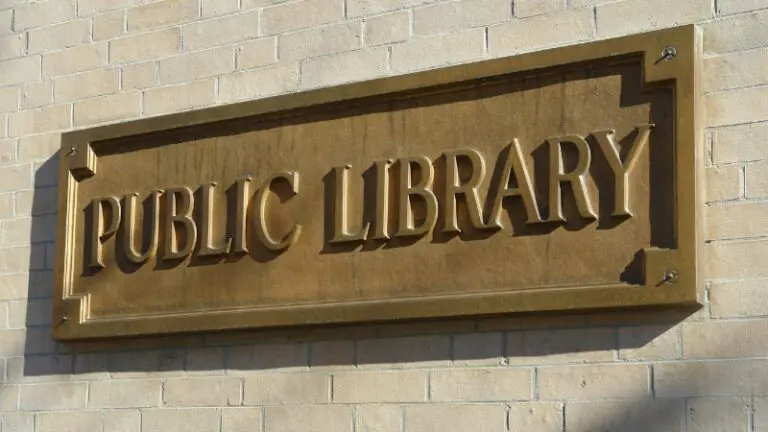David Letterman is one of those names everyone recognizes when it comes to late-night TV. Born and raised in Indianapolis, he brought a unique mix of sarcasm, humor, and charm to television that people loved.
From his hilarious “Top Ten Lists” to his interviews that always felt a little unpredictable, Letterman had a way of making you laugh and feel like you were in on the joke with him.
What made him stand out was how real he felt. He had a way of blending sharp humor with genuine moments, showing off both his Midwest roots and his knack for being effortlessly funny.
Starting with big dreams in a small city, he worked his way up to become one of the most iconic hosts in television history.
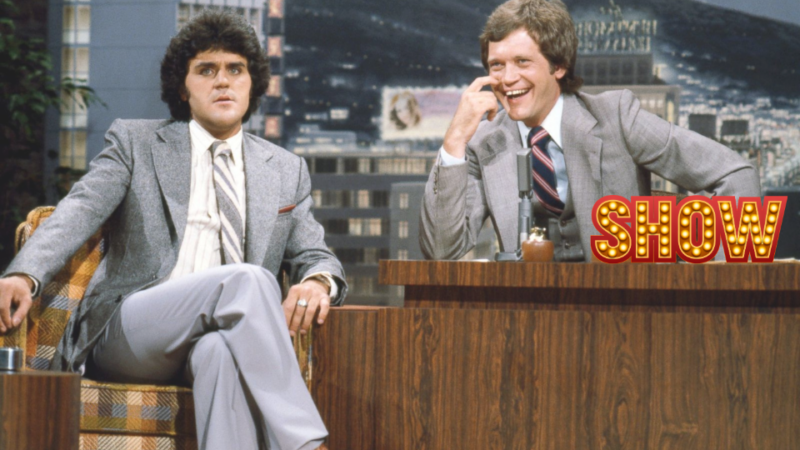
Full Name
David Michael Letterman
Birth Date
April 12, 1947
Birth Place
Indianapolis, Indiana, USA
Education
Ball State University (B.A. in Telecommunications)
Early Career
Weather broadcaster and radio talk show host
Breakthrough
Host of NBC’s Late Night with David Letterman (1982-1993)
Iconic Show
Late Show with David Letterman (1993-2015)
Total Episodes Hosted
6,080 episodes of late-night TV
Style
Humorous, sarcastic, and innovative with segments like “Top Ten Lists”
Post-Retirement
Host of Netflix’s My Next Guest Needs No Introduction (2018-present)
Awards
Numerous Emmy Awards, Kennedy Center Honors (2012), Mark Twain Prize for American Humor (2017)
Family
Married to Regina Lasko; one son, Harry
Estimated Net Worth (2025)
$450 million
Table of Contents
ToggleMeet the Late-Night Legend from Indianapolis
David Letterman was born on April 12, 1947, in Indianapolis, Indiana. Growing up in the Broad Ripple neighborhood, he developed a love for entertainment early. Letterman attended Broad Ripple High School, where his sharp wit started to show.
His humor made him stand out even as a young boy.
- Year Letterman joined WLWI: 1970
- Years spent in Indianapolis before moving to Los Angeles: 26
- First TV salary: Estimated $12,000 annually (adjusted to about $80,000 today).
Education and First Steps into Media
Letterman pursued a degree in telecommunications at Ball State University in Muncie, Indiana. Graduating in 1969, he found his first job as a radio host in his hometown. Fun fact: His alma mater now has a scholarship program named after him for aspiring broadcasters.
Local Weatherman
After his radio gig, Letterman transitioned to television as a weatherman on WLWI in Indianapolis. Known for his quirky on-air antics, like congratulating tropical storms for reaching hurricane status, he turned weather reporting into a comedy segment before it was a trend.
Fun Fact: A Meteorological Rebel
- Once announced “hail the size of canned hams” during a broadcast.
- Created a comedic moment by claiming he wanted to name hurricanes after his girlfriend.
The Move to Hollywood
In 1975, Letterman moved to Los Angeles, chasing his dream of becoming a comedian and writer. While performing stand-up comedy at The Comedy Store, he caught the attention of major networks. This led to writing gigs on shows like “Good Times” and appearances on “The Tonight Show Starring Johnny Carson.”
Early in his Hollywood days, he worked as a joke writer for TV shows but was once fired for making the material “too absurd.” That same absurdity later became his trademark.
Breaking into National Television
David Letterman got his first shot at national television in 1980 with “The David Letterman Show”, a morning comedy-variety program on NBC. While the show only lasted three months, it earned critical acclaim and won two Emmy Awards.
Even though the show was canceled, it showed off his one-of-a-kind humor and set the stage for his late-night career.
- Premiere date: June 23, 1980
- Number of episodes aired: 90
- Emmy wins: 2 (Outstanding Writing in a Variety or Music Program)
- Average audience: 1.8 million viewers per episode
Transition to “Late Night with David Letterman”
In 1982, NBC gave Letterman a late-night slot following Johnny Carson’s “The Tonight Show.”
“Late Night with David Letterman” debuted on February 1, 1982, bringing Letterman’s unconventional humor to a new audience. The show was an instant hit among young viewers and quickly became a cultural phenomenon.
Memorable Segments That Changed Late-Night TV
- Stupid Pet Tricks: Featuring everyday pets performing odd yet hilarious tricks.
- Top Ten List: A comedic countdown that became his signature bit.
- Audience Interaction: Letterman often pulled audience members into the action, breaking the “fourth wall.”
- Crazy Stunts: From wearing a suit covered in Velcro to driving a steamroller over random items.
Letterman was famously passed over as Carson’s replacement on “The Tonight Show,” which led to his departure from NBC in 1993. The decision sparked one of the most talked-about rivalries in TV history between Letterman and Jay Leno.
The Numbers Behind His Late-Night Success
- Years on NBC’s “Late Night”: 11
- Estimated salary in 1985: $2 million annually
- Peak audience: 4.5 million nightly viewers
- Number of Top Ten Lists created: Over 1,000 by the time he left NBC.
Why Viewers Loved Letterman
- His humor was offbeat and unpredictable, breaking away from traditional late-night norms.
- He wasn’t afraid to poke fun at celebrities, TV executives, or even himself.
- The quirky segments gave viewers something no other show was offering.
His habit of throwing pencils at the camera started as a nervous tic but soon became a beloved part of his show.
Breaking Barriers
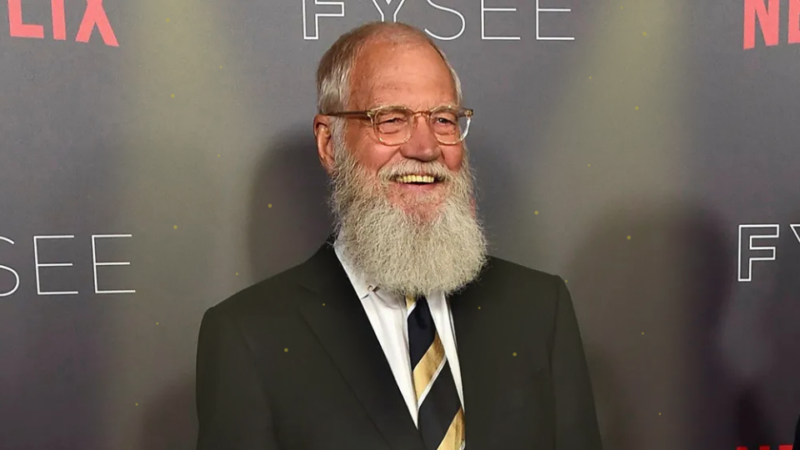
Letterman brought a quirky, unpredictable vibe to the format. The show wasn’t just interviews and monologues—it was packed with offbeat segments and humor that broke all the usual rules.
Memorable Segments that Defined the Show
- Stupid Pet Tricks: Ordinary people showcasing their pets’ hilarious and unusual talents.
- Top Ten Lists: Countdown lists that became an instant classic.
- Viewer Mail: Letterman’s playful way of interacting with fans, always sprinkled with sarcasm and wit.
The Big Move to CBS
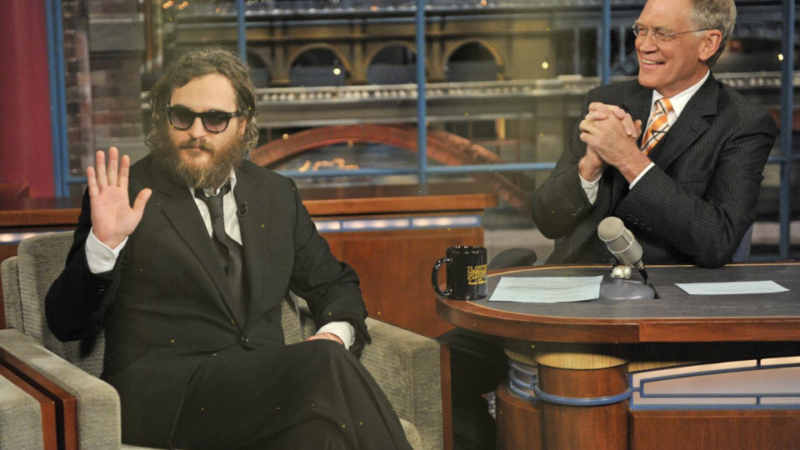
In 1993, David Letterman made the move from NBC to CBS. CBS offered him a prime-time slot directly competing with Jay Leno, and Letterman was ready for the challenge.
Classic segments like Top Ten Lists stayed, but Letterman also leaned into high-profile interviews and unforgettable stunts.
Memorable Moments
- Drew Barrymore’s Surprise: When she jumped on his desk and flashed him for his birthday in 1995, it became one of the show’s most iconic moments.
- Bill Murray as the First Guest: Murray, a longtime friend of Letterman, set the tone for the show with his unpredictable antics.
- Celebrity Guests Galore: From Oprah Winfrey to Barack Obama, Letterman’s couch was the place to be.
The Leno Rivalry
The move to CBS ignited a famous rivalry with Jay Leno, who stayed at NBC. Fans were divided, and ratings battles were fierce. Despite ups and downs, Letterman held his ground, becoming a cultural icon in his own right.
When Letterman first joined CBS, his salary was a whopping $14 million per year—making him one of the highest-paid TV hosts of his time.
Famous Faces on the Couch
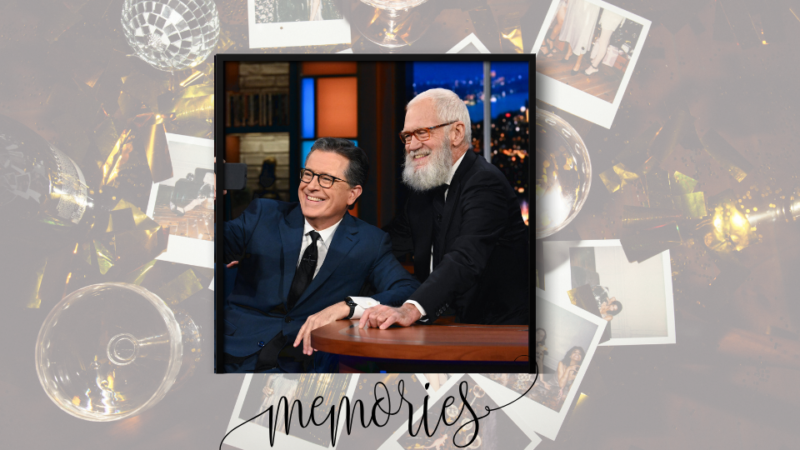
Over the years, he interviewed everyone from movie stars and musicians to politicians and sports legends.
- Oprah Winfrey joined Letterman in 2005 after years of public tension, creating one of the most anticipated interviews in late-night history.
- Bill Murray was the first guest on Late Night and returned frequently, often bringing his quirky humor and unpredictable antics.
- Legendary musicians like Paul McCartney, Beyoncé, and Foo Fighters not only chatted with Letterman but also performed live.
Unforgettable Moments
The Top Ten List: Comedy Gold
Each night, Letterman would count down a list of funny, sarcastic, or absurd items based on a specific theme. The countdown often ended with the audience laughing harder than they expected. The topics were relatable but unexpected, like “Top Ten Reasons to Watch the Super Bowl” or “Top Ten Signs You Need a New Job.”
Most Memorable Lists
Best Shows of All Time
Here is a countdown of David Letterman most unforgettable episodes.
10. Bill Murray First Appearance (1982)
Bill Murray was the first guest. His unpredictable comedy and wild energy set the tone for the entire show’s vibe.
9. Drew Barrymore Birthday Surprise (1995)
Drew danced on the desk and gave the host a weird surprise for his birthday. This episode became one of the most talked-about moments in late-night history.
8. Madonna Controversy (1994)
Madonna’s appearance sparked chaos when she used colorful language and teased the audience. The controversy skyrocketed ratings and turned heads across the media.
7. Farrah Fawcett Interview (1997)
Farrah odd and rambling interview confused viewers, but the calm humor of the host made the situation both awkward and hilarious.
6. Johnny Carson Finale Appearance (1994)
Johnny Carson, the late-night legend, made a rare appearance. It was a powerful moment of respect and humor that bridged two generations of television icons.
5. Jerry Seinfeld Talks About Seinfeld (1998)
Right after his legendary sitcom ended, Jerry joined him to share insights and funny moments from the show that changed comedy forever.
4. Barack Obama Visits (2009)
Obama became the first sitting president to join on his show. The mix of humor and serious conversation showed his range as a host.
3. Oprah and Dave Reconcile (2005)
Oprah and Letterman ended their highly publicized feud live on air. The episode blended humor with genuine warmth, creating a memorable TV moment.
2. Post-9/11 Monologue (2001)
In one of his most emotional moments, he returned after the attacks and delivered a heartfelt message. His words gave hope and comfort to viewers during a dark time.
1. The Final Episode (2015)
Letterman said goodbye with an episode packed with humor, tributes, and emotional reflections. The star-filled event closed a 33-year chapter in late-night history.
Awards and Recognitions
Award/Recognition
Year
Description
Primetime Emmy Award for Outstanding Writing for a Variety Series
1981
Recognized for his work on NBC’s “The David Letterman Show.”
Primetime Emmy Awards (Total 16 Wins)
1981–2002
Includes wins for “Late Night with David Letterman” and “Late Show with David Letterman.”
Peabody Award
1991
Awarded for excellence in television broadcasting for “Late Night with David Letterman.”
Mark Twain Prize for American Humor
2017
Honored for his significant contribution to American comedy.
Television Critics Association Career Achievement Award
2003
Recognized for his lasting impact on late-night television.
Kennedy Center Honors
2012
Celebrated for his lifetime contribution to American culture through performing arts.
Induction into the Television Academy Hall of Fame
2012
Recognized for his groundbreaking work in television.
Grammy Award Nomination for Best Spoken Word Album
2008
Received a nomination for narrating “This Land Was Made for You and Me.”
Presidential Medal of Freedom
2018
Awarded by President Barack Obama for his contributions to entertainment and culture.
Daytime Emmy Award
1980
Won for his earlier work on daytime television.
FAQs
Final Thoughts
David Letterman remains one of the most memorable late-night hosts in TV history. He showed that humor, honesty, and being yourself can leave a lasting mark. His work influenced generations of comedians and entertainers, proving that a small-town kid with big dreams can truly make it to the top.
Read Next – Famous Hollywood Movies Filmed in Indiana




